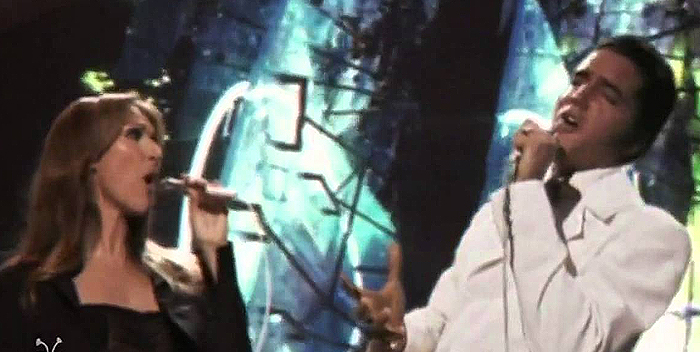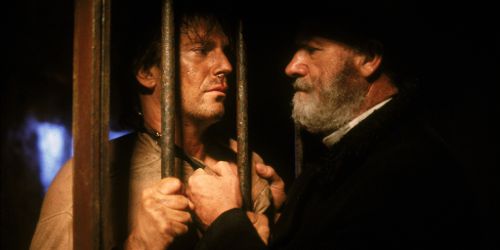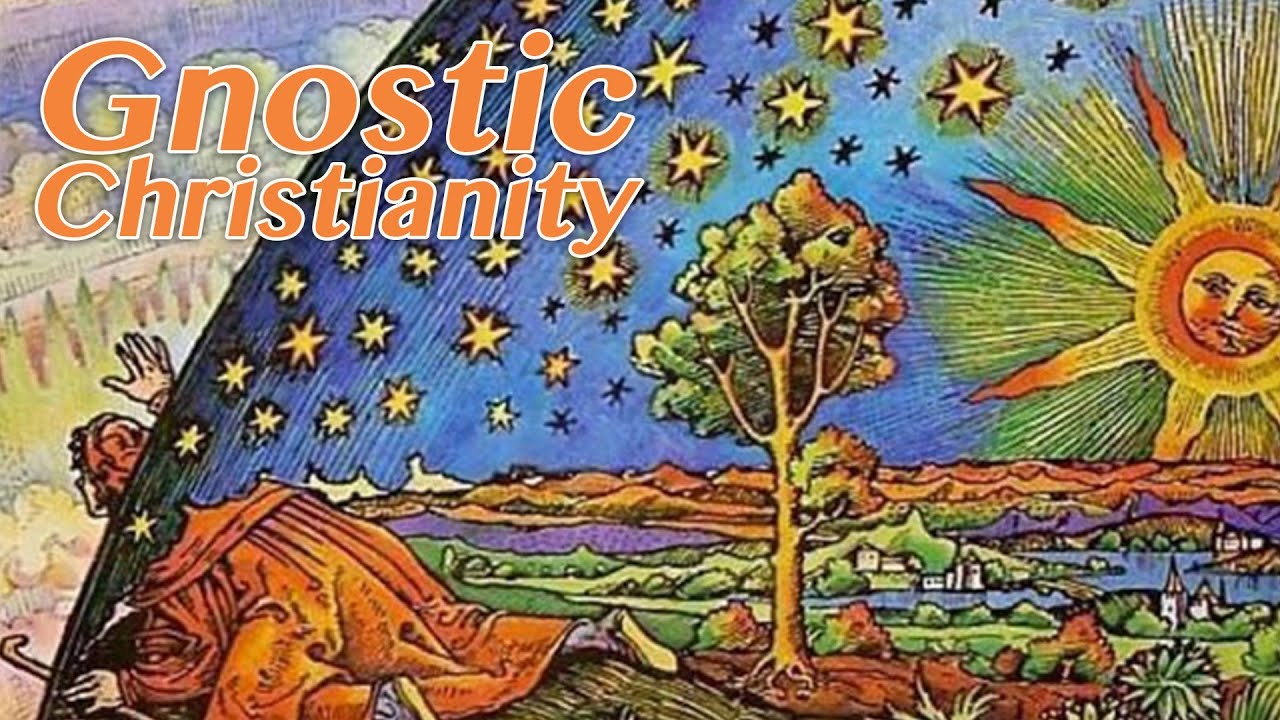|
Word Gems
exploring self-realization, sacred personhood, and full humanity
Celine and Elvis
"why, oh why, can't my dream come true?"
the elusiveness of world peace
return to "Levels of Consciousness" main-page
|
Celine and Elvis sing, ‘why, oh why, can't my dream come true?’ - why is world peace so elusive?

Celine “travels back in time” to 1968, the year she was born, to sing “If I Can Dream” with Elvis – an amazing digital construction, and what a fantastic performance.
see the video
|

If I Can Dream
There must be lights burning brighter somewhere
Got to be birds flying higher in a sky more blue
If I can dream of a better land
Where all my brothers walk hand in hand
Tell me why, oh why, oh why can't my dream come true
There must be peace and understanding sometime
Strong winds of promise that will blow away
All the doubt and fear
If I can dream of a warmer sun
Where hope keeps shining on everyone
Tell me why, oh why, oh why won't that sun appear
We're lost in a cloud
With too much rain
We're trapped in a world
That's troubled with pain
But as long as a man
Has the strength to dream
He can redeem his soul and fly
Deep in my heart there's a trembling question
Still I am sure that the answer gonna come somehow
Out there in the dark, there's a beckoning candle
And while I can think, while I can talk
While I can stand, while I can walk
While I can dream, please let my dream
Come true, right now
Let it come true right now, oh yeah

|
there are plenty of vicious people in this world who don't care about law or who gets hurt; in fact, the more they get hurt the better they like it...

Wyatt Earp, Kevin Costner and Gene Hackman
Nicholas Earp severely instructs his son:
"I'm a man that believes in the law. After your family, it's about the only thing you got to believe in. But there are plenty of men who don't care about the law. Men who'll take part in all kinds of viciousness and don't care who gets hurt. In fact, the more they get hurt, the better they like it. When you find yourself in a fight with such viciousness, hit first if you can. And when you do hit, hit to kill. Don't worry. You'll know when it comes to that."
Our country is descending into mob-rule. What we see now, every day in the media, is the incessant "kangaroo court" running contrary to the flow of progressive history. Rule-by-law was a concept first achieved by the ancient Greeks, a tremendous advancement for humankind, sweeping away rule by a dictator’s whim or the mob’s churlishness. With dispassionate rule-of-law, a Greater Good could be built, people could make long-range plans, civilization and knowledge could expand without threat of despotic confiscation, disputes could be settled in courts following strict rules of evidence and civil procedure, not by local feud, judicial partisanship, or whim. With this stabilizing boon to society, people could put down roots, expect certain outcomes, enjoy seeing their grandchildren grow up in a more predictable world, plant oak trees, live without fear of someone stealing their property or good name by making false accusations -- as rule-of-law granted a measure of peace and security against the terrors of an uncertain life.
This system was not without its flaws; even the best of human regulation will be flawed; there can be no utopia on planet Earth, given the dark side of human nature. But it was the best and safest way to live ever devised by mortals.
But today we are in process of upending 2500 years of humanistic thought; we're dismantling society's safety-net as we descend into barbarism.
the utterly shameless
Those of the “utter shamelessness,” as we learned on the main-page, care nothing about law. They care nothing about who gets hurt, whose good name is tainted or ruined, and the more people get hurt, the better they like it. They believe they have a moral right to bully -- in elevators, on streets, in restaurants, and public hearings -- those of other views, because they see themselves as morally superior and pure.
While these shamelessly vicious enemies of society urinate on the law, scoff at and mock the law-abiders, they also hide behind the law for protection against rising protests by law-abiding citizens. But their "clever" gamesmanship and disingenuity has a limited shelf-life. People who respect law will be pushed only so far. It’s what civil wars and blood-in-the-streets are made of. If we're not very careful now, orderly society will be put on hold while a “Battle of the OK Corral” is fought in your neighborhood.
|
why can't my dream come true
People of good will have long asked the question, with Celine and Elvis, Why can’t my dream come true? Why won’t that sun appear? Why are we trapped in a world troubled with pain? Why can’t we just stop the suffering?
There’s a section of my city where, at certain times, one will find people with posters and banners, handing out leaflets: “Stop the war! Disarm now! We want peace! End the military!” But then we also have many who reflect the pragmatic view of Nicholas Earp: “The world is filled with vicious people who would love to see you suffer; the more suffering the better. If you have to, hit first, and don’t let it be a practice shot.”
|
Editor's note:
the essence of ‘violence’ is ‘violation’ - not gross physical contact
To construe the definition of “violence” narrowly, limiting it to gross physical contact, would suggest that one’s right to defend oneself is also something immoral. And, of course, this is what some people believe, what the anarchists want you to believe, that citizens do not have a right to defend themselves – but this is nonsense.
The word “violence,” itself, reveals its nature and underpinnings. “Violence” is part of the concept “to violate.” Those upon whom “violence” is inflicted have been “violated” in terms of human rights and sacred dignity.
And when defense is mustered to stop an attack of “violation” of human rights, this resistance is not “violence” because there is no “violation.” In fact, far from "violation," it becomes a duty to push back against evil. The form of this reaction becomes a matter of timing, judgment, and wisdom, but to allow evil and “violence,” the attacks of “violators,” to proceed unchallenged is grossly immoral.
There are many forms of “violence” which have nothing to do with gross physical contact. Your rights and dignity, as a human being, might be "violated" in numerous ways. And all of this is "violence."
One’s response to “violence” will, of course, be measured against the degree of “violation.” Some issues are small, mere slightings, and the response should be small; but some “violations” are egregious and life-threatening and, in such cases, all necessary force is an appropriate answer.
There are many “Hitlers” in life and in history, big and small, and when they come on the scene to "violate" you or the ones you love, you are well within your rights to resist, in some appropriate fashion; and sometimes, if the “violation” threatens human life, and peace-loving society itself, then resistance might take the form of deadly force or a "just war". To do otherwise is to allow monsters to rule the Earth, as the "utterly shameless" will not stop gathering power to themselves until they are stopped. This is the lesson of history.
These "violators" are run by the dysfunctional ego. The "Course In Miracles" explains it to us. Also, see the discussion on the "forgiveness" page concerning “resist not evil” and "turn the other cheek." These phrases have a very specific meaning offered by the context of discourse, and have nothing to do with becoming doormat or sacrificial lamb to the world and its ego-insanity.
|
can a dream come true when there are so many vicious people
Nicholas has his grim doubts.
On the main-page we reviewed Dr. Hawkins’ many levels of consciousness. Starting at the bottom of the barrel, we find the “utter shamelessness,” then, followed by states of mind like guilt, fear, apathy, pride, and the rest.
All of which raises the question: How can we ever achieve world peace if large portions of the population live in dystopian frames of mind?
Let’s review the first one, the “utter shamelessness.” We learned that it’s charmingly characterized by “violence and audacity, utter disrespect for propriety, no restraints, that which is shocking to public decency.”
we know that people do bad things all the time, but what does it mean to say that these traits represent a “level of consciousness”
It means that, for them, from their dysfunctional perspective, this is completely normal, right, and good.
When they do things that are wholly unjust, we’re tempted to exclaim, “How could you do that? How do you live with yourself? Why are you doing things that no decent person would do?”
But, this assumes too much. We imagine them, at least in some respect, feeling as we feel, thinking as we think. But that’s not how a “level of consciousness” works.
it's how they see reality
When they do something outrageous – “outrageous” to us – they feel quite justified in their actions. It’s the “right thing to do” as far as they're concerned. That's how they see it, and it's how they see themselves fitting into the world and reality. There's nothing to be sorry for, from their point of view. We might call their conduct "vicious," but they might call it "heroic" and "courageous," fighting against what they view as evil opposing them.
And they’d be able to give you a list of reasons why their conduct is “moral.” Our scrutiny of those reasons would uncover a host of illogical flights of fancy – the kind I catalogued in the “Clear Thinking” article -- but rational argument would not move them. "You just don't understand," they would tell you.
and this is the way it is, all the way up the line, for each of the many "levels of consciousness"
We might feel pangs of guilt or fear concerning a particular situation, but this doesn't necessarily mean we live on the psychological planes of "guilt" and "fear"; they're just visiting for the afternoon. But those who do hold residence, move right in, set up house, and sign the mortgage papers.
In other words, some people inhabit guilt and inhabit fear. It's where they live, their personal "house of horrors." For them, their entire world is colored by these base levels of perception. (See my essays on Guilt and Fear.) And when they act, or fail to, it's all quite reasonable to them, given the mental burdens they lug around. Who could do more or anything else? they comfort themselves.
all of the lower levels of consciousness are facets of the "false self"
You remember our old friend the "false self." We've talked about this many times. Pretty much everything below Energy Level #200 is the "false self" at work. But some of the lower stages are more false than others; that is, these court a greater degree of insanity, a greater disconnect from reality, than the higher ones.
all of this sort of feels right, doesn't it; because most people you run into out there are kind of crazy
Most of the people you meet in society live on one of the lower levels of consciousness. We're not too shocked by this statement.
Editor's note: And this is why the Guides say that 75% upon crossing over will spend at least some time in a dark place.
How many people would you trust with your money, your house, your children, your confidence, or anything else?
How many people would you trust to always seek for your highest and best interests? How many people would you trust never to gossip about you, never slant a story, never take advantage of you?
Well, we could list lots of other tests here. But why is this so? The false self explains it to us: it's the inner neediness; it's the sense of "I don't have enough" because, more fundamentally, "I am not enough."
This perception of existential lack is an illusion. But when we live on the lower levels of consciousness, a sense of emptiness will feel very real to us. It's how we'll see the world: "There's scarcity everywhere! there's never enough! no matter how much I have, even if I'm a billionaire or have power over hundreds of millions, I never feel safe and secure!"
And this means that, even if the false self gets what it wants, it will never be happy. There is no true happiness on those lower levels of consciousness; only a momentary thrill of winning or gaining, but then it all fades into nothingness. Ego-based so-called romantic love is a prime example here, with that "nasty habit of disappearing overnight."
And when someone is driven by this sense of "never enough," of systemic emptiness, it's like an addiction, and eventually anybody with an addiction is very likely to let you down, and will put him or herself first in order to fill an incessant gnawing hunger of the spirit.
The problem is "structural" not one of "content." You can have all the "content" you want, fill your life with all sorts of perks and goodies, people, positions, and places, but until "structure" is addressed, that is, a new level of consciousness, we can kiss peace of mind and "the joy" good-bye.
And so, when we come to understand these principles -- and the best classroom for this is self-introspection, which becomes the basis of our spirituality -- then we hardly need to ask the question, "Why can't my dream come true? Why is world peace so elusive?"
Peace is elusive on the international level because, more fundamentally, it's elusive on the personal level. The rule-of-law, as Nicholas Earp pointed out, will keep most of us from killing each other, but this is not the full-bodied peace we're really looking for. Constraint is a far cry from the elevated consciousness of each seeking the well-being of others.
will we ever have peace, justice, and happiness for all in this world
We’d like to answer in the affirmative here, of course; however, as we study the testimonies of the wisest Spirit Guides we must conclude that the answer, more than likely, is no.
And why should this be? Are we not making at least some progress as a species? Given enough time, could we not hope for utopia on this planet?
The answer appears to be this: We came here for certain specific objectives, to learn certain lessons that are much more difficult to learn in Summerland. If our world were to lose those teaching benefits, there’d be no reason to come here, and we might as well stay over there.
In other articles I’ve quoted the Guides who say that we learn from the adversity here; from the sometimes harsh polar-opposites; from the negativity that we encounter. Earth is a difficult training ground, a stern classroom – it’s meant to be this way, and since there’s no shortage of immature people, the Earth's "schoolhouse" is not likely to go out of business anytime soon; but it’s all temporary, and we’ll graduate from this difficult school, and then we can go home to our “real life” and “real world.”
In preparation for this writing, I happened to think of one of Jesus’ famous parables, the “wheat and the tares.” Today, we don’t know what “tares” are anymore, but think of “wheat and weeds.” Jesus used this ill-mixture to represent our present life on Earth. We’re just all mixed together right now haphazardly. People who are striving to live a good life will have "the 75%," all sorts of lower-consciousness people around them. And some of these others are “vicious” as Nicholas said, and some will hurt you if they can. These are the “utterly shameless” who prey upon higher-minded ones trying to improve.
But notice Jesus’ comment: He didn’t say, “We’re going to change things here, we’re going to build a better world, and then we’ll all be happy.” No, instead he acknowledged the threat of the “weeds” to the “wheat," and essentially said, “We can’t do much about it right now, short of destroying the crop. So, just work with it the best you can. We have to wait for the harvest, and things will be sorted out later.”
There is a day of reckoning. But not so much in this world. That’s for Summerland.
|

irredeemable world
Dr. Willis Barnstone, translator of the ancient Nag Hammadi documents, informs us that some of the Gnostic gospels predate the Synoptics by several years; as such, I feel they present a more accurate picture of Jesus. (See "The Wedding Song" for more discussion of the Gnostic documents.)
I really like the Gospel Of Thomas, in my opinion, one of the most spiritual messages. Jesus, as portrayed therein, emphasizes one's direct access to God -- which is why these documents were not included in a later Church-approved canon.
like trying to preserve a snowflake in hell, some problems have no solution; not in this world
Adrian has studied Gnostic philosophy more than I, and he mentioned that many Gnostics (there were different sects) taught that this world is unredeemable. Human nature, being what it is, often taking orders from the “false self,” makes the social problems which bedevil us, essentially, unsolvable. It’s not going to get any better “down here in the trenches.” It may appear to for a while, but the “inner neediness” of "I am not enough," the craving of more and more, assures one more resurrection of “the evil empire.” And then another.
We talked about how the world seems to be slipping toward some sort of major conflagration. The “dark side” is becoming emboldened, throwing off restraint, just as it did before World War II. That’s how I see it. He agreed. But then I interjected that there’s no guarantee that, in this “irredeemable world,” we might not grant license to some sort of oppressive neo-Roman Empire. Long term, I'm optimistic, but that doesn't mean we couldn't invite to ourselves a new Dark Age. It's not as if it hasn't happened before.
My view is that I wouldn’t be surprised, given today’s gross level of incivility, if things get worse before they get better. It's all the more difficult today with our dumbed-down populace, venal and bribable, flirting with power-grabbing socialism and political hucksters. Ask WWII vet David Kenyon Webster what he thought about this; he had a choice speech prepared for those who love servility.
getting back to normal
Few have any idea, nor do they care, about what the Founding Fathers gave to us. Adrian remarked that “we’re spoiled.” We think that having personal freedoms is just the way it is, there couldn't be anything else -- but the liberty we enjoy today is a complete aberration in history, just a little sliver of light amidst a vast, dark wasteland of totalitarian dystopia. We joked that we’ll soon be “getting back to normal.” The jungle always wins, you know.
Think of what “normal” means. The average person, during the last several thousands of years of recorded history, has lived under constant threat of oppression from governmental overseers; constant threat of invasion to privacy or personal freedom; constant threat of disruption to peaceful mode of living. The personal freedoms, now fast eroding, a legacy of the Founders, represent a tiny island of self-determination in oceanic deception, brutality, and enslavement. Few today perceive the uniqueness of what we have, or had. Yes, we’ll soon be getting back to normal.
how then shall we live our lives
Anyway, I said, ultimately it doesn’t matter, Summerland is just around the corner – that’s the fail-safe in this world, as, no matter how bad it gets, we're just one missed heartbeat from being "shot from a cannon" into a new world, the "real world." Our task, while we’re still here, is to live an honorable life and not get sucked into the maelstrom of materialistic, cultish society.
|
|
Editor's last word:
one person at a time
All this, stated differently, means that there can be no wholesale, universal utopia in-a-moment. There will be no monolithic wave of peace sweeping the world. Why is this? It is so because world peace begins in the hearts and sanctified spirits of individuals; world peace might come about only one person at a time. A minority only will see the light and endeavor to live for the truth in this world – and therefore we should not expect world peace to engulf us massively anytime soon.
In Summerland, there is no mass-movement toward a generalized ubiquitous peace, no talk of “let’s all join hands and sing around the campfire” to usher in a grand societal peace. Over there, the individual and one’s personal development is emphasized – because that’s the only place where real change, and real peace, can occur. See further discussion in the "500 Testimonies from the Other Side" article.
|
|




